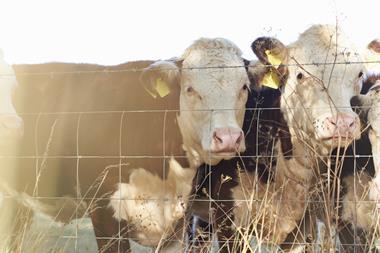
Almost half of UK growers plan to walk away from a key industry audit scheme, claiming new standards have made it “unworkable”.
The new proposed rules from the Supplier Ethical Data Exchange (Sedex) will require farming and growing businesses to pay for the recruitment and transportation fees of the seasonal workers they employ.
Sedex is a standard that is widely backed by all major UK supermarkets, who demand growers are signed up to the scheme before their products are listed.
The standards scheme announced in April that its new SMETA 7.0 audit would come into force tomorrow (10 September).
The new standard will require farming and growing businesses to pay for the recruitment and transportation fees of the seasonal workers they employ in a so-called ‘employer pays principle’ and could cost the industry an additional £90m per year.
But in response to the proposals, a new survey from the British Growers Association found that 46% of all respondents said they intended to either resign from Sedex or sign up to an alternative ethical audit.
Just 37% of respondents said they intended to continue with Sedex membership and use SMETA 7.0.
Additionally, some 84% of respondents said they had not been consulted about the SMETA changes.
Growers are often required to complete ethical audits as part of their retail supply contracts. In some cases, failure to meet a standard could result in a loss of contract.
Read more: Sedex to press ahead with controversial new seasonal worker auditing requirements
“We knew there were serious concerns among growers,” said Jack Ward, CEO of the BGA. “But this survey has given the clearest indication yet of what growers may do in the face of several unworkable changes to this audit.”
Ward said that until a Defra-funded impact assessment on the employer pays principle had reported is findings “there is no place for this new SMETA standard”.
“UK growers follow some of the strictest ethical standards in the world,” said Ward.
As part of the survey, growers expressed specific concerns with the standard. “What is to stop a new employee from leaving and going elsewhere to work?” after one employer had paid for their travel and visas, asked one.
Another added that it was expected to cost its small farm £3,500, arguing it was “a picture in time of an employer’s administration” rather than providing real protection for workers.
“This proposal threatens to end the viability of produce production in the UK, at a time when we should be striving to produce more,” said one grower.
Read more: Growers brace for up to £90m in additional seasonal worker costs
However, human rights organisations have welcomed the changes to protect workers from exploitation in the supply chain.
“There is a desperate need to address recruitment and migration costs in the agriculture industry,” said Kate Roberts, Focus on Labour Exploitation head of policy. “Expecting workers to pay these costs already contradicts international standards; workers should not pay to work, and workers who arrive in the UK already in debt are at particular risk of exploitation.
“The UK needs to catch up; real transparency about these costs is a step in the right direction.”
It comes as Worker Support Centre has called on the UK and Scottish governments to clarify laws regarding worker accommodation following an investigation from ITN that revealed seasonal workers on British farms were given substandard accommodation and “unacceptable” living conditions.
The organisation has urged the governments to provide a minimum standard for accommodation, which it can be inspected against and held to.
WSC said it had seen an increase in workers raising issues this year and many focused on problems related to poor housing standards – including damp, black mould, cold and draughts, broken furniture and extremely cramped conditions.
“The way this visa has been designed leaves workers highly dependent on their employer, for their status, pay, housing and employment,” said Caroline Robinson, executive director at WSC. “It is now incumbent on government to take action, to review the situation for workers to ensure they are legally entitled to a minimum standard of accommodation and to set about enforcing it.”



















No comments yet